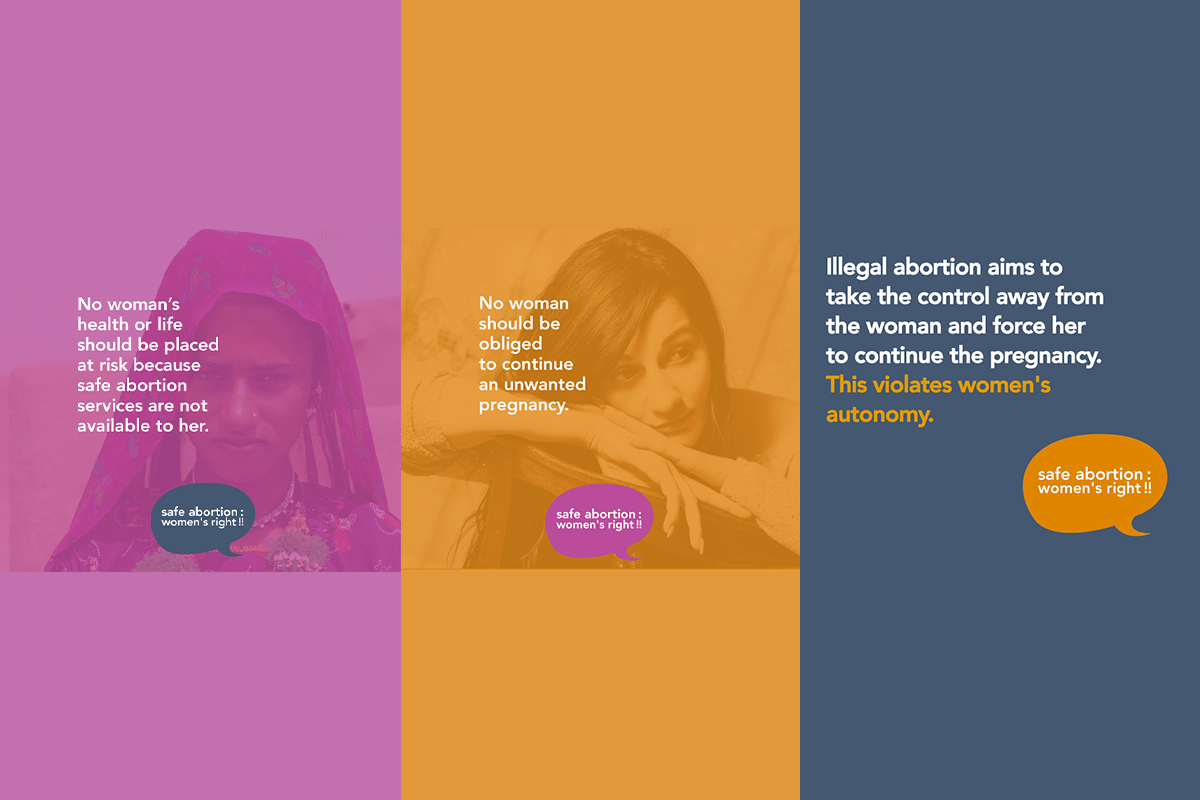
Visuals for International Safe Abortion Day 2016
Each year, on September 28 – International Safe Abortion Day, activists around the world take action and speak out for the right to safe abortion. We hope all of you will be organising something for this year and look forward to hearing about your activities.
International Safe Abortion Day had its origins in Latin America and the Caribbean, where women’s groups in the region have been mobilising since the 1990s to demand that their governments decriminalise abortion, provide access to safe and affordable abortion services and end stigma and discrimination towards those who have an abortion.
The Day of Action was declared an international day by the Women’s Global Network for Reproductive Rights in 2011 and by the International Campaign for Women’s Right to Safe Abortion in 2012. Since then, there have been a growing number of activities in an increasing number of countries across all global regions. National and world leaders have begun to make statements in support of the day, and a growing number of media outlets report national and international events and write articles on the theme. We still look forward to 28 September becoming an official United Nations Day.
This year’s Call to Action is to build an unstoppable movement, organise and support solidarity actions when they are requested, demand the right to bodily autonomy against oppressive and unresponsive policies and call for universal access to safe abortion and justice for all those who are faced with an unwanted pregnancy and need an abortion.
In the past year, we have seen positive law reform in some countries, including from constitutional courts and national parliaments, and polls showing majority support for safe, legal abortion. At the same time, we have seen greater restrictions imposed in other countries, which arise not from religious or cultural values but from governments dominated by right-wing, anti-democratic, repressive policies, which seek to restrict women’s lives in many ways, not just one.
This year, as every year before this, we focus on the importance of both individual stories and the power of collective action at the local, national, regional and international level. We are also highlighting how young people are a powerhouse of unstoppable forces, taking leadership in the movement, employing innovative advocacy strategies to champion safe abortion rights and reproductive justice ore widely. They bring fresh perspectives, creative ideas, and a relentless drive for change. The leadership of young women is not just inspiring, it is essential.
This year, we call upon governments, global institutions and funding bodies to…
- Decriminalise abortion. Abortion should be part of health care policy, not in the criminal code.
- Remove all policy barriers by expanding legal grounds, increasing upper time limits, omitting third party approval (e.g. by doctors and parents) and unnecessary waiting periods.
- Fund and provide abortion services as part of national health services. Include abortion care providers, youth-friendly abortion services, helplines, doulas and acompañantes as providers of support, information and care.
- Ensure access to and availability of post-abortion care, especially by trained midwives at the community level, and including the use of manual vacuum aspiration for emergency cases.
- Provide funding to organisations and networks working for abortion rights, reproductive justice and bodily autonomy.
- Ensure access to abortion pills through telehealth services and pharmacies, as well as through abortion services, and approve self-managed abortions with pills with access to backup care if needed.
- Provide comprehensive sexuality education in schools, including safer sex, condoms and contraception, and the importance of bodily autonomy.
- Raise awareness that girls, women, transmen and gender diverse people may need abortions, and include this in education and training of health care providers.
- Support buffer zones around clinics that provide abortion services to prevent all forms of harassment and attacks on those entering and leaving the clinics.
No one should be imprisoned for having an abortion or for providing access to safe abortion!!!



